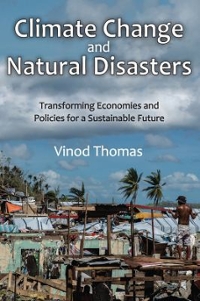Economics
QUESTION 2 (10) Can nominal interest rates be negative? Nominal interest rates are generally positive. However, there have been exceptional circumstances at times that have caused nominal interest rates to become negative. For instance, in the early 1990s the Japan economy began to stagnate, with the result that the government attempted to stimulate it by reducing interest rates. Eventually nominal short-term interest rates were reduced to close to zero and even in some cases to negative levels. In order to encourage the public to borrow money from the government, money was lent out with a smaller repayment amount than the original principal. Borrowing was encouraged in this way to promote increases in consumption and investment expenditure, so that aggregate output would increase. In late 2003, negative interest rates were also recorded on repurchase transactions in the United States. This occurred during a period when the Federal Reserve System (FRS) was also attempting to encourage increased economic activity with a lowering of interest rates to very low levels. As a result, lenders became willing to pay interest to borrowers to obtain securities that other entities were interested in buying, rather than risk losing clients. During the financial crisis that started in 2007 a similar approach of lowering interest rates was followed in the United States, the United Kingdom and in the Eurozone. In particular, rates in the United States approached zero levels. This implied that real interest rates were of course negative, despite the low levels of inflation in these countries. However, the lowering of the interest rates on their own did not achieve the desired results. Consequently, these countries also resorted to quantitative easing measures, thereby increasing liquidity substantially in an effort to stimulate domestic economic activity. Source: Sikios, 2006 2.1 What effects should negative real interest rates have on an economy? (5) 2.2 Were past attempts to stimulate economic activity using near-zero or negative nominal interest rates (5) successful? Explain your point of view.. Telkom-StayHome... ~ 21:25 @ 64% A efundi.nwu.ac.za QUESTION 1 (20) Rising energy prices could lead to rate hikes in South Africa Rising energy prices are fuelling inflation expectations in South Africa, prompting traders to bet that rate increases are on the cards this year even as the economy remains in the doldrums. Brent crude oil, which determines South African gasoline prices, climbed to the highest since May 2019 on Wednesday. Together with an expected increase in electricity tariffs, that's pushed breakeven rates - seen as a gauge of bond traders' outlook for price rises - to the highest since April 2020. The South African Reserve Bank has cut its policy rate five times since the beginning of last year to a record low to support an economy that contracted the most in nine decades last year. Going Up South African inflation expectations have climbed to April 2020 highs Five-year breakeven rate -4.5 Bloomberg -4.0 Percentage poin -3.5 -3.02 2.5 Apr Hay Jun Jul Aug Sep Oct Nov Dec Jan Feb 2020 2021 Bloomberg South African inflation quickens first time in three months Price pressures, together with rising US Treasury yields, may force the central bank's hand. Bond yields also suggest traders are positioning for rate hikes, with the curve bear steepening as short-end yields rise faster than longer-term ones. Yields on local-currency government bonds due February 2023 have climbed for 11 consecutive days, adding 18 basis points to trade at 4.82% as of 11:41 in Johannesburg Wednesday. That's the highest since July. Those on bonds maturing in 2040 have climbed 13 basis points in the same period. Rising energy prices are fuelling inflation expectations in South Africa, prompting traders to bet that rate increases are on the cards this year even as the economy remains in the doldrums. The massive loss of jobs and livelihoods because of COVID-19 has not only exacerbated unemployment, which stands at 42%, when counting discouraged work seekers, but has also worsened poverty levels, with data from Statistics South Africa reporting more than half of South Africa's population living in poverty. The pandemic has also shown the necessity of basic income support, in the form of monthly cash payments, to working-age adults with no or little income. South Africa has an extensive social grant programme which provides income support to over 18 million of the most vulnerable: the elderly, children, and people with disabilities. South African president Cyril Ramaphosa has announced a three-month extension of a special R350 (US$24) a month COVID-19 grant for unemployed adults who do not receive any social grant or unemployment insurance Adapted from : https://businesstech.co.zaews/energy/468906/rising-energy-prices-could-lead-to-rate-hikes-in-south-africa/ and https://theconversation.com/south-african-president-extends-special-covid-19-grant-why-this-is-not-enough-153942 Thoroughly discuss inflation expectations as a cause of inflation and how closely aligned are people's 1. expectations with the inflation objective the SARB wants to achieve? Based on the extract above, should the SARB hike the repo rate in the indicated quarters?, Also taking into 1.2 consideration the increased inflation expectations, describe the costs of inflation, particularly as to how the 18 million grant recipients will be affected








